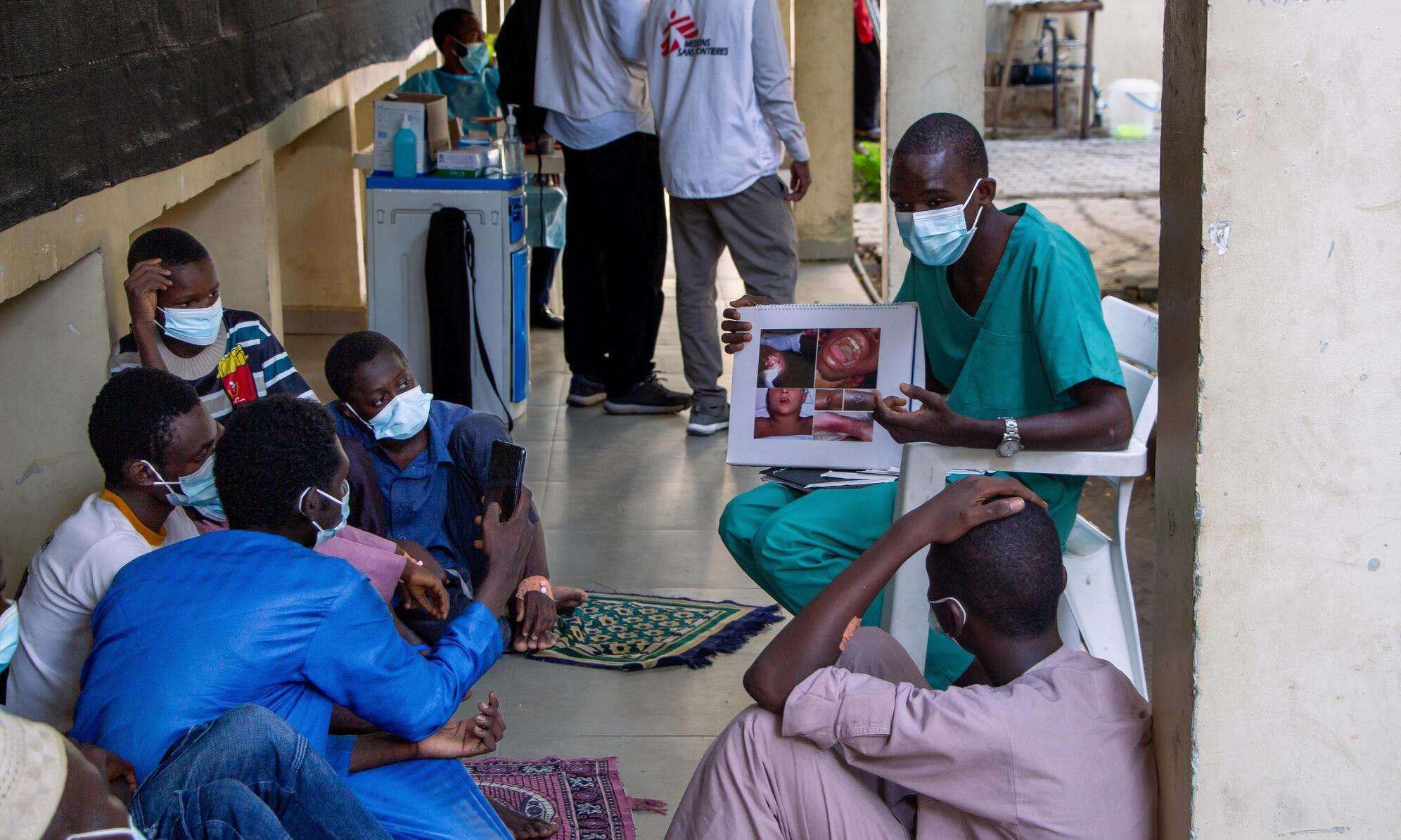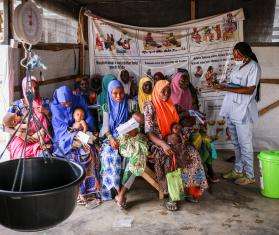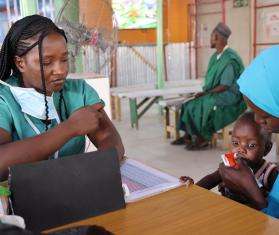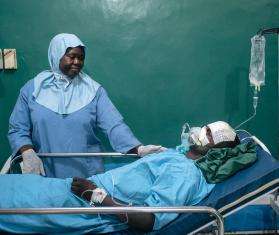NEW YORK/ABUJA, SEPTEMBER 18, 2023—Amidst a deadly diphtheria outbreak tearing through Nigeria, where thousands have been infected and hundreds have died, the international medical humanitarian organization Doctors Without Borders/Médecins Sans Frontières (MSF) is urging the international community to immediately scale up support to improve treatment, implement preventive measures, and carry out contact tracing to control the outbreak’s spread. Nigeria is only one of several countries currently experiencing spikes in diphtheria cases in West Africa and beyond—a situation that's being fueled by a worldwide shortage of the lifesaving antitoxin used to treat people with the disease.
Nigeria’s Center for Disease Control declared an outbreak of the disease on January 20. Between May and early September, more than 6,000 confirmed cases were recorded. Approximately 4,000 suspected cases were recorded in the country in August 2023 alone, with over three-quarters coming from Kano State. This outbreak has already surpassed Nigeria's worst diphtheria outbreak in decades, which occurred in 1989 and infected 5,039 people.
“We’re currently seeing more than 700 people with suspected diphtheria and admitting more than 280 patients on a weekly basis in Kano State’s two diphtheria treatment centers,” said Dr. Hashim Juma Omar, an MSF emergency project medical doctor. “Women and children aged under five are the most vulnerable groups and are the people most affected right now in Kano State. They really need help.”
Diphtheria is a highly contagious and potentially life-threatening bacterial disease that can present in respiratory or cutaneous forms. It is vaccine-preventable, but Nigeria has low vaccination coverage—partly due to global, unprecedented backsliding in immunization coverage during the COVID-19 pandemic—which is exacerbating the outbreak. The disease can kill half of people who are infected if they don’t receive proper treatment. Even with treatment, diphtheria is still fatal for five percent of people who contract the disease.
MSF teams are currently responding to the outbreak in the states of Kano, Borno, and Bauchi. However, responding to the outbreak has proven challenging due to a worldwide shortage of diphtheria antitoxin caused by dwindling production capacity. This supply crisis is expected to worsen in the coming months unless more investments are made to scale up global production of the treatment.
“While we provided 2,000 doses of diphtheria antitoxin last month in Kano, securing doses of the antitoxin has been one of the biggest challenges in this crisis,” Dr. Omar said. “We have placed an urgent additional order of 5,000 doses to cover the needs in our projects, but, still, it is not enough.”
In light of these challenges, increased efforts to reduce the disease’s transmission and to strengthen outbreak preparation and response in Nigeria are crucial. This includes vaccination since only 70 percent of children have received their first dose of diphtheria-tetanus-pertussis vaccine in the country. The decline in immunization led to a reported 25 million un- or under-vaccinated children in Nigeria in 2021. However, funding for vaccines and implementation costs remains a barrier to scaling up; Kano State alone requires millions of doses for people most at risk of getting diphtheria.
In addition to urgent antitoxin and vaccination needs, additional international organizations must immediately scale up improved surveillance and contact tracing to help curb the disease’s spread and take measures to strengthen the local health system so people who fall ill can receive care more quickly and before their conditions become dire.
In Maiduguri in Borno State, MSF has added a 20-bed diphtheria treatment clinic to its pediatric hospital in Gwange III PHC, where more than 110 people have been treated by MSF staff since January. In Kano State, teams have seen 6,707 people with suspected or confirmed cases of the disease since January as they work in treatment centers with a total bed capacity of 147. In Bauchi State, where MSF has already treated 21 cases with diphtheria during its usual medical activities in Ganjuwa, teams are monitoring the situation. In Jama'are, MSF is ready to start diphtheria-specific activities based on evolving needs.
MSF is also responding to diphtheria in neighboring countries. In mid-August, teams started supporting the Ministry of Health in Guinea, working in an epidemic diseases treatment center in Siguiri prefecture. More than 100 people have been admitted there since the start of activities. Additionally, in collaboration with the Nigerian Ministry of Health, MSF teams conducted a first round of a preventive diphtheria vaccination campaign in Kantché and Amsoudou health areas in early September, vaccinating nearly 48,500 people. A second round of vaccinations will take place in early October.
Nigeria: Worsening diphtheria outbreak requires urgent response
Low country vaccination rates and global shortage of diphtheria treatment is exacerbating the outbreak in Nigeria and regionally.

Nigeria 2023 © Ehab Zawati/MSF



